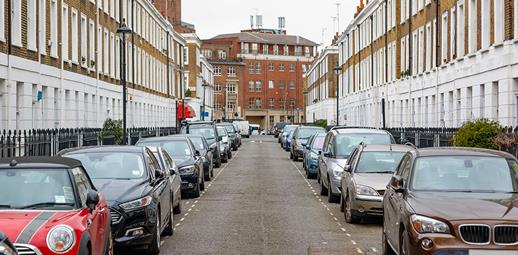
Car insurance is a legal requirement for all drivers in the UK [1]. So, it’s important to know which options are available to you and ensure you have the cover you need.
Here’s a guide to help you get started.
Why you need car insurance
Getting car insurance is essential not only to drive legally, but also to give you peace of mind that you’re protected in the event of an accident.
If you’re driving without insurance and the police catch you, they could give you a fixed penalty of £300 and six penalty points on your licence. If the case goes to court, you could get an unlimited fine and be disqualified from driving [2]. The police also have the power to seize, and in some cases, destroy the vehicle that’s being driven uninsured.
Types of car insurance
There are three types of car insurance: third party, third party, fire and theft and comprehensive.
Third party insurance covers the damage to other vehicles involved in an incident with your vehicle, but you’ll have to cover the cost of damage to your own car yourself [3]. It also covers injuries to a third party or damage to their property.
A third party, fire and theft policy provides the same cover as a third party policy as well as covering your vehicle being stolen or damaged in a fire.
Comprehensive car insurance offers the highest level of cover available. As well as including the cover provided by third party and third party, fire and theft, you are also covered for damage to your own car [3].
What affects the cost of car insurance?
There are numerous factors used to set the price of your motor insurance. How much each factor affects the price and terms of your policy will vary between insurers, so you might not be offered the same price by each company. The factors usually include:
- Your age: younger and older drivers may have higher premiums [4].
- Your occupation: the nature of your work may increase the risk of your car being damaged [5].
- Your insurance claims history: if you have suffered a loss or made a claim in the past this could indicate a higher risk of claiming again [5].
- Your postcode: the number of accidents and level of vehicle crime in your local area may influence your insurance costs [5].
- The type of car you drive: for example, whether it’s high performance, or has safety features installed [5].
- Where you park your car: a car locked in a garage may be deemed less likely to be damaged or stolen than one parked on the roadside [5].
- Your annual mileage: the likelihood of being involved in an accident is affected by the amount of time you spend on the road [6].
There are a few relatively simple things you can do to try to cut the cost of your premium. Read our guide to find out how you may be able to get cheaper car insurance.
Car insurance add-ons
Even if you have comprehensive car insurance, you may not be covered for every possible scenario, so insurers give you the option to add further types of cover to your policy, often for an extra cost. These car insurance add-ons may include:
Legal protection: this cover varies from one provider to the other, but normally covers up to £100,000 of legal costs [7], such as personal injury, travel expenses or the cost of a solicitor.
Breakdown cover: this normally includes 24/7 roadside assistance and vehicle recovery. Insurers often offer different levels of breakdown cover, at different costs, with benefits ranging from roadside assistance in the UK to vehicle recovery in Europe.
Personal accident cover: this provides compensation if your vehicle is involved in a road accident and you, your partner or any named driver are killed or suffer a serious injury.
Replacement vehicle cover: this add-on covers the cost of a hire car if your vehicle is stolen, vandalised, or is written off following an accident that was your fault. The hire car will be provided for a set time period, established by your insurer.
Excess protection cover: with this type of extra cover, you could get a refund for your excess - the sum you will pay towards any claim that you make on your insurance - up to a certain amount set by your insurer, following a car insurance claim.
Key cover: this allows you to claim back the cost of replacing your keys and locks, if they’re lost, stolen or broken.
Here we’ve included some of the most common additional types of cover available. Before you buy your car insurance policy, consider whether you need each of these and read through your policy documents to see what you’re covered for.
Some common jargon busted
There are a lot of words used when talking about car insurance that you might rarely come across. - For some help jargon busting, we’ve created this A-Z of car insurance terminology. Here are some of the key terms:
Fault claim: A fault claim refers to an accident or incident where you are considered to be responsible or where the insurer cannot recover costs from another party. If damage is caused to a vehicle and the person responsible cannot be traced, this is also classified as a fault claim. In the event of a fault claim, you will have to pay the excess set in your policy.
Non-fault claim: This is when another person is to blame for the accident and your insurer is able to recover the cost of the claim from them.
Modifications: any changes you make, or that have been made to your vehicle that aren't factory standard. Modifications could lead to an increase in the cost of your insurance and you must inform your insurer if you make any to your car [8].
Premium: the price you pay, either monthly or annually, in order to receive car insurance. Paying your insurance monthly is usually more expensive than paying your premium through one annual payment.
Third party: the other person or people involved in a claim with you, the policyholder. The first party is the insurer and the second party is you.
Write off or total loss: a vehicle is written off when it's either deemed to be not repairable or so badly damaged it would cost more to repair than the value of the vehicle.
No claims discount
For each year in which you don’t make a claim on your car insurance, you earn a year’s no claims discount, which is sometimes referred to as no claims bonus. This could then result in cheaper premiums on your policy [9]. The treatment of no claims bonuses differ from insurer to insurer.
The safer a driver you are, the less likely you are to make claims on your car insurance policy – and so the cheaper your insurance could be [9].
Beware common misconceptions
There are several common misconceptions among drivers. For example, you might think that because you have a comprehensive car insurance policy, you are insured to drive a friend’s car. But this isn’t necessarily the case [10], so you’ll need to check if this is included in your policy. It’s worth bearing in mind that, even if you are covered to drive other cars under your policy, this may only be third party cover, which means any damage to the car you’re driving won’t be covered.
Read our guide to find out about more myths about car insurance.
Reading your policy documents carefully before taking out a policy is essential. Car insurance policies vary, so always take the time to check and understand the level of cover suits your needs.
Don't assume that lower levels of cover such as third party and third party, fire and theft will be cheaper than comprehensive cover, as this isn’t always necessarily the case [10]. Take your time to check out the different options and think it through. Ultimately, the most important thing when it comes to car insurance is making sure you’ve got the cover you need and can take to the road legally and with peace of mind.
Read more about car insurance and driving at Solved.
[4] https://www.which.co.uk/money/insurance/car-insurance/car-insurance-for-the-over-50s-al5gr0z3flrk
[6] https://www.comparethemarket.com/car-insurance/content/the-effects-of-annual-mileage-on-car-insurance/


